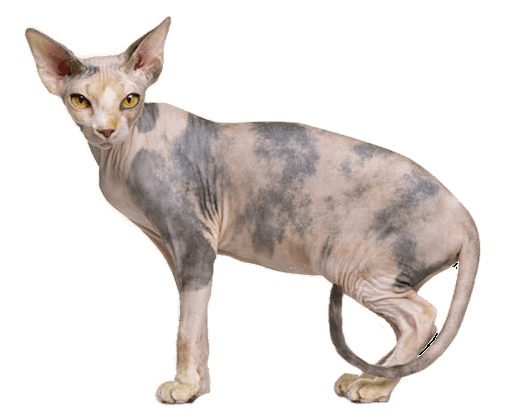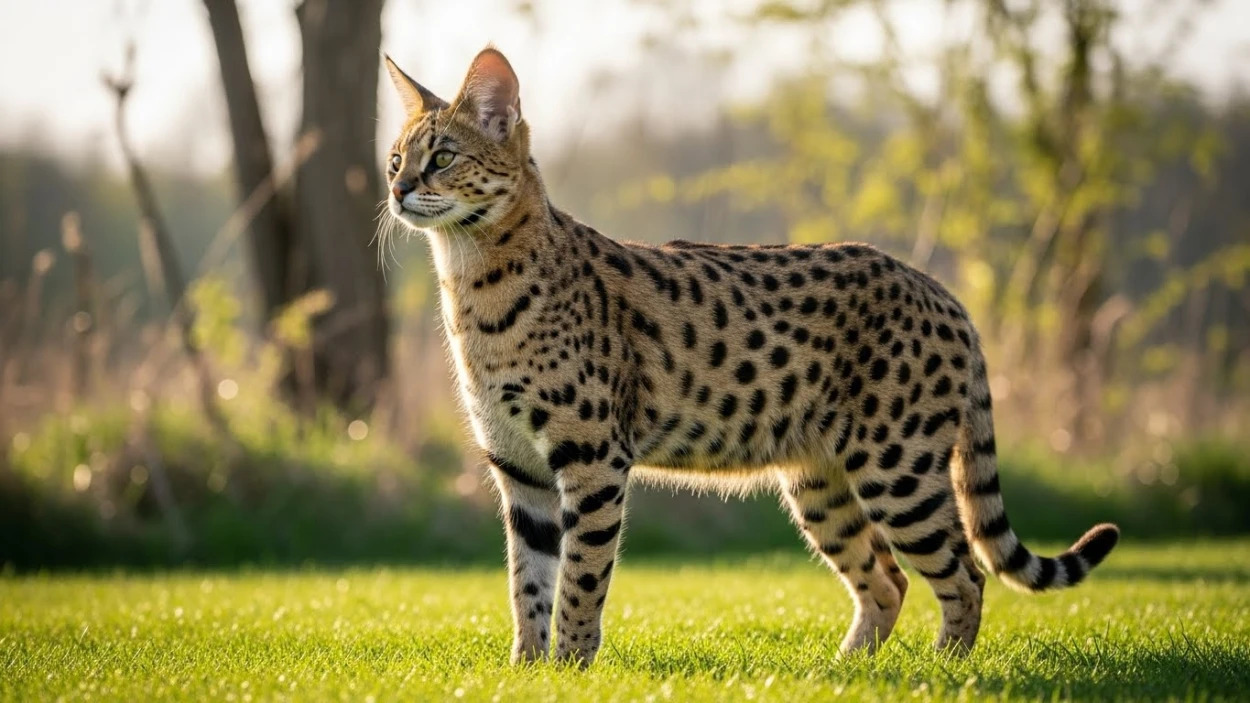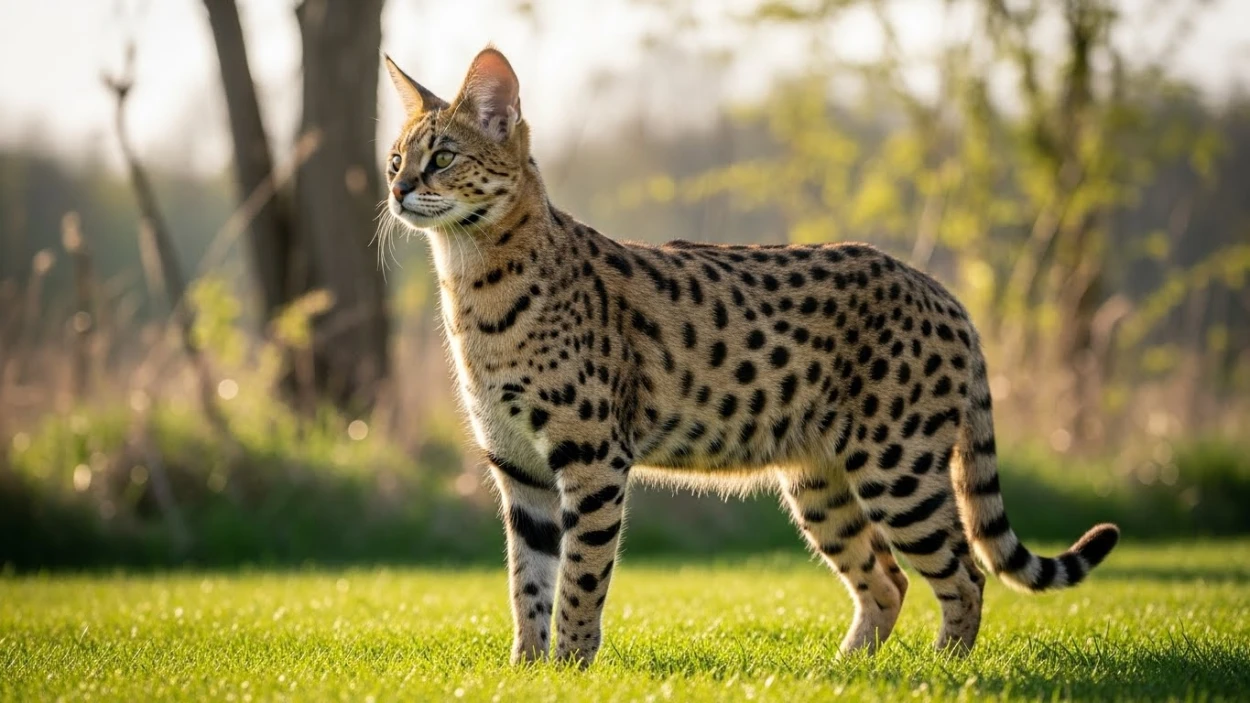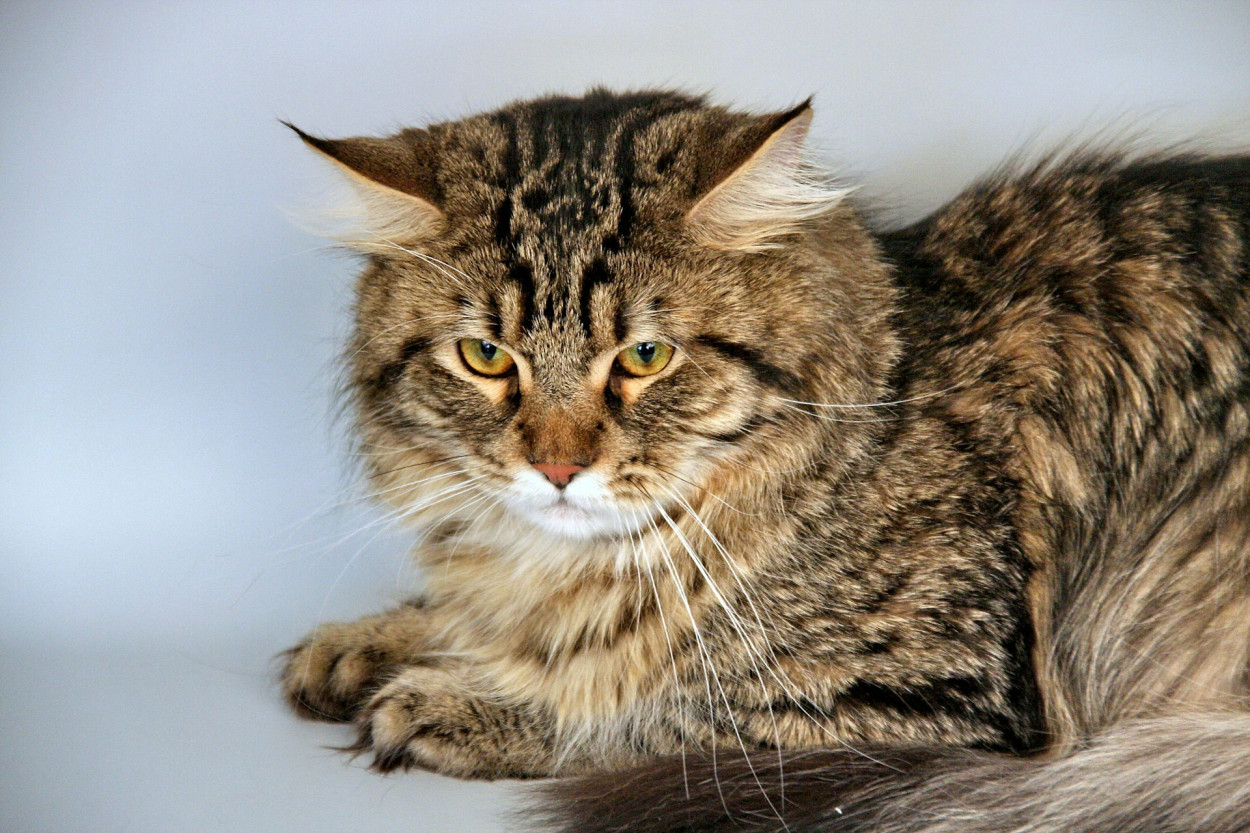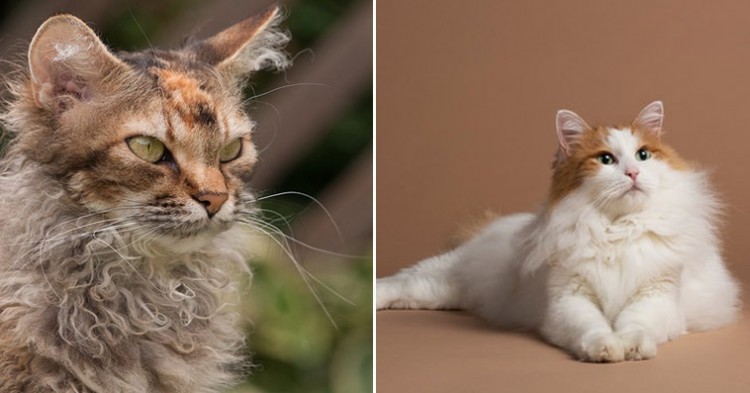Breed Information
| Popularity/Rank | 8 |
|---|---|
| Name | Sphynx |
| Other names | Canadian Hairless, Canadian Sphynx |
| Origin | Canada |
| Size | Small, Medium |
| Coat | Bald, Suede-like, Hairless |
| Lap Cat | Yes |
| Lifespan | 12 to 14 years |
| Temperament |
Friendly, Gentle, Inquisitive, Quiet, Loyal 1. Friendly: Sphynx cats are known for their friendly dispositions. They enjoy being around people and other animals, and they are generally very social creatures. This makes them great pets for families with children or other pets. 2. Gentle: Sphynx cats are also known for their gentle natures. They are not prone to aggression, and they typically get along well with other animals and people. This makes them ideal pets for those who are looking for a calm, loving companion. 3. Inquisitive: Sphynx cats are very curious creatures. They love to explore their surroundings and they are always interested in what is going on around them. This can make them great companions for those who like to have an active pet in their life. 4. Quiet: While Sphynx cats are not necessarily known for being quiet, they are typically not as vocal as other cat breeds. This can be a benefit for those who do not want a pet that is constantly meowing or making noise. 5. Loyal: Sphynx cats are very loyal companions. They form strong bonds with their owners and they will often follow them around the house or sit on their lap when they are feeling affectionate. This makes them great pets for those who want a close relationship with their feline friend |
| Weight | Female: 6 - 9 pounds, Male: 8 - 12 pounds |
| Colors | Black, Blue, Chocolate, Cream, Lavender, Red, White |
| Kitten Prices |
USD $1800 - $3000
Sphynx kitten prices can range from $1,800 to $3,000. The price of a Sphynx kitten depends on the breeder and the reputation of the breeder. The price also depends on the parents of the Sphynx kitten. The quality of the Sphynx kitten also affects the price. When choosing a Sphynx cat, it is important to consider the price. The higher the price, the better the quality of the Sphynx kitten. However, not all breeders charge high prices for their kittens. Some breeders may charge less for their kittens if they are not as well-known or if they have a good reputation. It is also important to consider the parents of the Sphynx kitten when choosing a breeder. If the parents are healthy and have good temperaments, then they are more likely to produce healthy and well-tempered kittens. |
Breed Characteristics
| Adaptability | |
|---|---|
| Affection Level | |
| Child Friendly | |
| Dog Friendly | |
| Energy Level | |
| Grooming | |
| Health Issues |
Hairlessness, congenital heart disease, respiratory problems, kidney disease, digestive problems, allergies Is Sphynx cat Hypoallergenic? There is no definitive answer to this question as everyone's allergies are different. However, many people who are allergic to cats find that they can tolerate Sphynx cats better than other breeds. This is because Sphynx cats do not have the same level of fur as other cats, which means there is less dander for people to be allergic to. 1. Hairlessness The Sphynx cat breed is known for its hairlessness, which is caused by a genetic mutation. While this may be the breed's most distinguishing feature, it also makes them prone to a number of health problems. 2. Congenital heart disease One of the most common health problems in Sphynx cats is congenital heart disease. This is a condition that is present at birth and can cause the heart to work harder than it should. 3. Respiratory problems Sphynx cats are also prone to respiratory problems due to their hairlessness. This can include difficulties in breathing and an increased risk of respiratory infections. 4. Kidney disease Kidney disease is another common health problem in Sphynx cats. This is a condition that can lead to the kidneys not functioning properly. 5. Digestive problems Sphynx cats can also suffer from digestive problems, such as constipation and diarrhea. This is often due to their hairlessness, as there is no hair to help absorb moisture from the intestine. 6. Allergies Allergies are also common in Sphynx cats. This is often due to their hairlessness, as there is no hair to filter out allergens from the environment. |
| Intelligence | |
| Shedding | |
| Social Needs | |
| Stranger Friendly | |
| Vocalization | |
| Health Care |
Sphynx cats are a unique breed of cat that is known for their lack of fur. While this may make them seem like they require less care than other cats, they actually need a bit more attention when it comes to their health. Here are a few things to keep in mind when caring for a Sphynx cat:
1. Sphynx cats are prone to sunburn, so it's important to keep them out of direct sunlight. If they must be in the sun, make sure to apply sunscreen to their exposed skin. 2. Sphynx cats are also prone to dehydration, so it's important to make sure they have plenty of fresh water to drink. 3. Because they lack fur, Sphynx cats are more susceptible to cold weather. Make sure to keep them warm during the winter months. 4. Sphynx cats require regular baths to keep their skin clean and healthy. Use a mild, unscented shampoo and avoid getting water in their ears. 5. Finally, Sphynx cats need regular nail trimmings. Their nails can grow very long and sharp, which can be painful for them. By following these simple tips, you can help keep your Sphynx cat healthy and happy. |
History
Sphynx cats are a unique breed of cat that is nearly hairless. These cats are known for their unusual appearance and friendly personality. Despite their popularity today, the Sphynx breed was once in danger of becoming extinct.
The history of the Sphynx cat begins in Canada in the 1960s. A hairless kitten was born to a domestic shorthair cat. This kitten, named Prune, was the first Sphynx cat on record. Prune's owner decided to mate him with another hairless cat, which resulted in the birth of more hairless kittens.
The Sphynx breed almost became extinct in the 1970s due to a genetic defect that caused many kittens to be born with deformities or die soon after birth. However, a breeder in Minnesota named Rene Deschamps-Jacques decided to work with these cats and eventually succeeded in producing healthy kittens. The Sphynx breed slowly began to grow in popularity after that.
The ancestry of the Sphynx cat is thought to include several other hairless breeds, such as the Devon Rex and Manx cats. However, the exact origins of the Sphynx are unknown.
The Sphynx breed was officially recognized by The International Cat Association (TICA) in 1985. Today, these cats are popular pets all over the world thanks to their unique appearance and loving personality.
Description
The Sphynx cat is a unique and interesting looking animal. They are hairless with wrinkled skin and large ears. They come in a variety of colors and patterns. The most common colors are black, blue, and red. The lifespan of a Sphynx cat is 12-14 years. They are medium sized cats weighing 6-12 pounds. The personality of a Sphynx cat is affectionate, curious, and playful. They are very friendly with other cats, dogs, children, and other animals. The temperament of a Sphynx cat is active and outgoing. They are very social animals that enjoy being around people and other animals. The health of a Sphynx cat is generally good but they are prone to certain health problems such as respiratory infections, skin problems, and heart disease. The adaptability level of a Sphynx cat is high. They do well in most environments and love to be around people. The benefits of owning a Sphynx cat as a pet include their affectionate nature, their playfulness, and their ability to get along with other animals.



